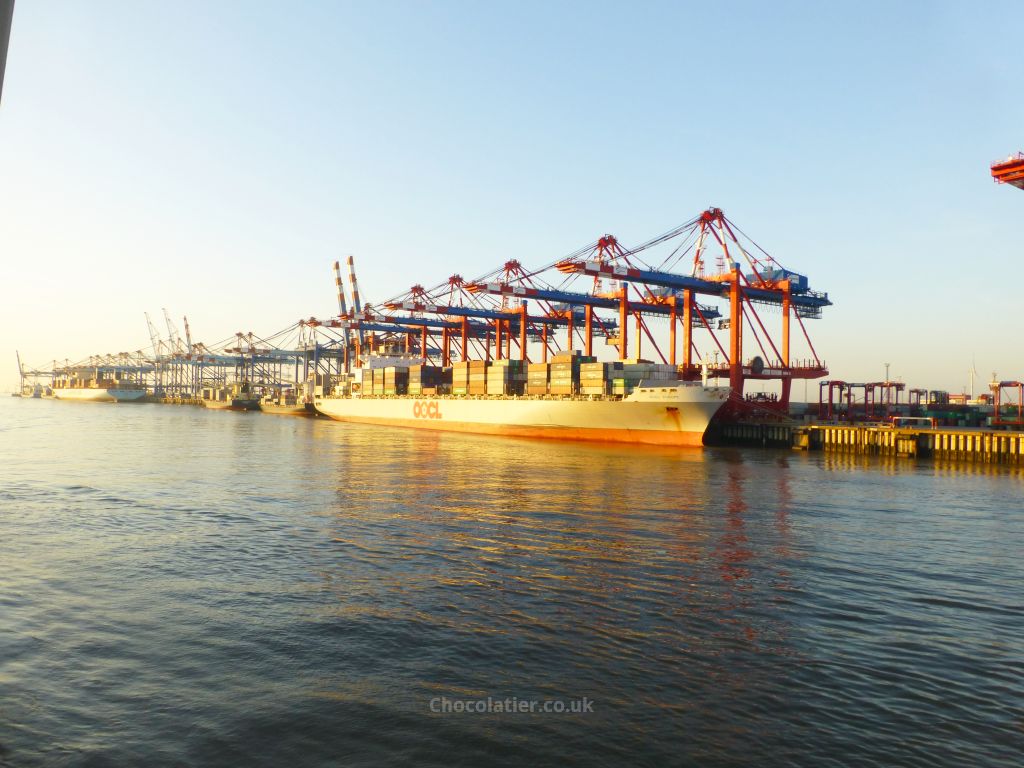In this article:
I've been hesitant to discuss Brexit on my chocolate blog as it's a contentious issue with strong feelings on both sides of the argument. For years, Brexit has had a polarising effect on the nation, with deeply entrenched views held by 'remainers' and 'Brexiteers'.
But as the end of the transition period draws near, businesses are now making final preparations for a no-deal outcome. While a last-minute deal still hangs in the balance, there's a fresh warning that leaving the European Union without a trade deal risks ingredient prices soaring by up to 20%, according to Keylink.
A supplier of cocoa, chocolate couverture and ingredients, Keylink sent its trade and hobbyist customers an email last week detailing their latest assessment of the impact a no-deal outcome would have on chocolate businesses, based on recently released documents from the UK Government. The company is advising its customers to carefully consider the risks to prices and supply and to carefully plan for the imminent changes.
Why Does a Trade Deal Matter?
While there have been many false starts to Brexit, the date of 1st January 2021 remains firm, despite the economic impact Coronavirus is currently wreaking across the UK and Europe.
This time, the only uncertainty lies with whether the UK and EU can agree a last-minute trade deal. Public spats suggest a deal is now unlikely, but there's always a chance of a deal until the deadline.

Without a deal, the UK Government has stated there will be customs controls at the border. The same will apply in Europe where British goods are exported to the continent. If a deal is struck, this should ease the flow of goods and the burden of tariffs in the new year.
The UK Government has published a new UK Global Tariff which comes into effect on 1st January 2021. Keylink has taken a look at their bestselling lines to assess the impact on its prices.
DISCLAIMER
It's worth noting that these tariffs aren't set in stone and might change if the UK secures a trade deal with the EU. Equally, this assessment by Keylink represents the company’s understanding of the situation at the time of writing. In the event of a meaningful trade deal, it is quite likely that much of the guidance will need updating.
The company predicts price hikes of at least 8% on chocolate couverture, shells, chips, decorations, plaquettes, fudge/caramel inclusions, and sugared almonds.
Nut pastes, praline masses, marzipan and truffle mass sits at between 8 % and 10%, while nuts weigh in at between 0% and 8% on the tariff scale.
Unsweetened cocoa powder attracts no additional tariffs but sweetened cocoa powder attracts an 8% rate.
Keylink predicts the worst affected products will be crystallised flowers, Griottines (cherries in alcohol), and some fruit/flavour pastes, fruit purees, and fruit pieces, which will attract as much as 25% tariffs in some cases.
What's The Impact On Chocolatiers?
Come the 1st January 2021, there's a risk that prices of raw materials imported into the UK will increase as a result of both import duties and increased transportation costs caused by the new customs formalities and longer transit times.
The additional burden of tariffs will force many ingredient suppliers to hike their prices to chocolatiers, who, in turn, will likely have to pass these additional costs onto consumers to remain viable.
Furthermore, Keylink expects to see short term product line shortages due to the delays at ports as a result of the introduction of new systems on 1st January 2021.
To mitigate this, Keylink advises its customers to stock up on vital ingredients to ease the impact of expected price rises and to ensure stocks of ingredients during the bedding-in period of the new border controls. The company suggests its customers gradually build up stocks throughout November and December rather than panic-buying at the eleventh hour.

As Valentine's Day and Easter are just around the corner, I would advise chocolatiers to consider how much stock they'll need for this critical trading period, and plan accordingly. As Benjamin Franklin once said, "If you fail to plan, you are planning to fail." While Brexit has already had a few false starts, this one appears set in stone, and there may not be a UK-EU trade deal after all.
What's The Impact On The Great British Public?
In a nutshell, prices are likely to rise and availability might be impacted, at least for the short term from January. While predicting the impact on end consumers is a fuzzy science, I'm expecting to see chocolate prices rise by at least 10% across the board. Some products might see a lower increase, while others might see dramatic increases.
I also expect to see larger manufacturers attempt another round of 'shrinkflation' to maintain price points through reducing quantities or weights further.
Delays at ports risks a delay to ingredients entering the UK. So, we might also see shortages of certain foodstuffs in the short term. That could affect the flow of Italian hazelnuts, Belgian chocolate, or German marzipan, for instance. It may also impact the flow of finished goods into the UK. For example, many supermarket chocolate bars are made in Germany for instance, and these may be vulnerable to short-term supply issues.
Is It All Doom and Gloom?
For many years, the 'Brexiteers' have accused 'remainers' of fear-mongering and of spreading doom and gloom. We'll find out in 2021 the true impact of Brexit. But even in the face of potential delays and tariffs, there's a silver lining.
Keylink explained to its customers that "one of the main consequences of Brexit will be to make it harder and costlier to import products." Not just ingredients, but finished products too. In this context, consider imported confectionery from Belgium, France, Italy, Germany, and Switzerland, amongst others.
Brexit has the potential to disproportionately raise prices of these finished goods, making locally produced confectionery more economically affordable. So we may soon be in a position were we find more British-made chocolate products lining our supermarket shelves.
For all the additional costs and red tape, Brexit presents an interesting opportunity for independent British chocolate makers. Plus, it's an ideal time for consumers to buy British.
SHOP LOCAL
It's never been more important to support your local chocolate makers and chocolatiers. Most would love your custom at this critical time. You can find at least 500 chocolate businesses in my handy chocolate finder tool. Many people have commented on discoveries they have made in their local community thanks to my shop finder.
Are you making Brexit preparations for your chocolate business? Let me know what you're doing in the comments below.

